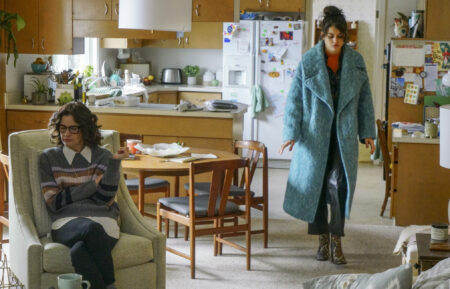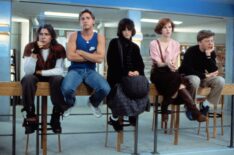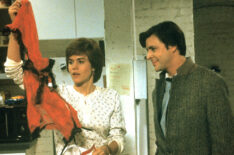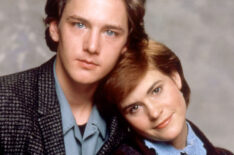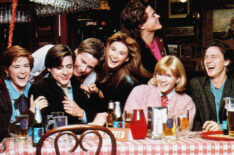Ally Sheedy
Credits

BratsStream
Self
Movie
2024

Chantilly BridgeStream
Actor
Elizabeth
Movie
2023

Single Drunk FemaleStream
Actor
Carol
Series
2022

Today 3rd Hour
Guest
Show
2018

Daily Blast Live
Guest
Show
2017

Live with Kelly and Ryan
Guest
Talk
2017

X-Men: ApocalypseStream
Actor
Scott's Teacher
Movie
2016

Little Sister
Actor
Joani Lunsford
Movie
2016

Client Seduction
Actor
Melissa Eco
Movie
2014

Sins of Our Youth
Actor
Vicki
Movie
2014

Full Circle
Actor
Series
2013

Full Circle
Actor
Show
2013

Fugly!
Actor
Stoddard
Movie
2013

The Chew
Guest
Talk
2011

Welcome to the Rileys
Actor
Harriet
Movie
2010

Ten Stories Tall
Actor
Jackie
Movie
2010

Citizen Jane
Actor
Jane Alexander
Movie
2009

Life During Wartime
Actor
Helen Jordan
Movie
2009

Harold
Actor
Maureen
Movie
2008

Today With Kathie Lee & Hoda
Guest
Show
2007

The Junior Defenders
Actor
Jill Fields
Movie
2007

Day Zero
Actor
Dr. Reynolds
Movie
2007

Perestroika
Actor
Helen
Movie
2007

Steam
Actor
Laurie
Movie
2007

PsychStream
Guest Star
Series
2006

Kyle XYStream
Guest Star
Series
2006

The Veteran
Actor
Sara Reid
Movie
2006

Shooting Livien
Actor
Brea
Movie
2005

Noise
Actor
Charlotte Bancroft
Movie
2004

A Good Night to Die
Actor
Marie
Movie
2003

Shelter Island
Actor
Louise "Lou" Delamere
Movie
2003

The Dead ZoneStream
Guest Star
Kate Moore
Series
2002

Just a Dream
Actor
Maureen Sturbuck
Movie
2002

The Interrogation of Michael Crowe
Actor
Cheryl Crowe
Movie
2002

Happy Here and Now
Actor
Lois
Movie
2002

Strange Frequency
Actor
Show
2001

The Warden
Actor
Helen Hewitt
Movie
2001

CSI: Crime Scene InvestigationStream
Guest Star
Series
2000

Once and Again
Guest Star
Series
1999

Sugar Town
Actor
Liz
Movie
1999

Our Guys: Outrage in Glen Ridge
Actor
Det. Kelly Brooks
Movie
1999

I'll Take You There
Actor
Bernice
Movie
1999

The Autumn Heart
Actor
Deb
Movie
1999

High ArtStream
Actor
Lucy Berliner
Movie
1998

Myth America
Actor
Movie
1998

The Fury Within
Actor
Joanna Hanlon
Movie
1998

OzStream
Guest Star
Lisa Logan
Series
1997

The Definite Maybe
Actor
Movie
1997

Buried Alive II
Actor
Laura Riskin
Movie
1997

Country Justice
Actor
Angie Baker
Movie
1997

Macon County Jail
Actor
Susan Reed
Movie
1997

Highball
Self
Movie
1997

Hijacked: Flight 285
Actor
Deni Patton
Movie
1996

Amnesia
Actor
Martha Keller
Movie
1996
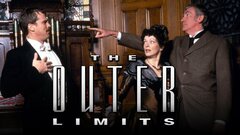
The Outer LimitsStream
Actor
Carter Jones
Series
1995

The Tin Soldier
Actor
Billy's Mom
Movie
1995

Ultimate Betrayal
Actor
Adult Mary Rodgers
Movie
1994

Parallel Lives
Actor
Louise
Movie
1994

The Haunting of Seacliff Inn
Actor
Susan Enright
Movie
1994

One Night Stand
Actor
Mickey Sanderson
Movie
1994

Lethal Exposure
Actor
Chris Cassidy
Movie
1993

The Pickle
Actor
Molly-Girl/Herself
Movie
1993

Chantilly Lace
Actor
Elizabeth
Movie
1993

Man's Best Friend
Actor
Lori Tanner
Movie
1993

Red Shoe Diaries 4: Auto Erotica
Actor
Karen
Movie
1993

Red Shoe Diaries
Actor
Karen
Series
1992

Red Shoe Diaries
Guest Star
Karen
Series
1992

Mi Esposa, Mi Perdición
Actor
Movie
1992

Home Alone 2: Lost in New YorkStream
Actor
Ticket Agent (New York)
Movie
1992

Tattle Tale
Actor
Laura Perot
Movie
1992
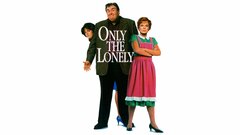
Only the Lonely
Actor
Theresa Luna
Movie
1991

Capone: The Lost Years
Actor
Kathleen Hart
Movie
1990

Capone Perdido
Actor
Movie
1990

Miedo
Actor
Movie
1990

Fear
Actor
Cayce Bridges
Movie
1990

Betsy's WeddingStream
Actor
Connie Hopper
Movie
1990

The Lost Capone
Actor
Kathleen Hart
Movie
1990

Heart of Dixie
Actor
Maggie DeLoach
Movie
1989

Maid to Order
Actor
Jessie Montgomery
Movie
1987

We Are the Children
Actor
Movie
1987

Les Enfants de la faim
Actor
Movie
1987
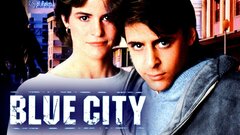
Blue CityStream
Actor
Annie Rayford
Movie
1986

Short CircuitStream
Actor
Stephanie Speck
Movie
1986

Una Segunda Vez en la Vida
Actor
Movie
1985

St. Elmo's FireStream
Actor
Leslie Hunter
Movie
1985

The Breakfast ClubStream
Actor
Allison Reynolds
Movie
1985
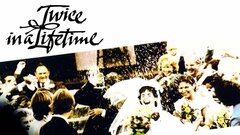
Twice in a Lifetime
Actor
Helen
Movie
1985

Oxford BluesStream
Actor
Rona
Movie
1984

Juegos de Misiles
Actor
Movie
1983

Deadly Lessons
Actor
Marita Armstrong
Movie
1983

WarGamesStream
Actor
Jennifer Katherine Mack
Movie
1983

Bad Boys
Actor
J. C. Walenski
Movie
1983

Chicago Story
Guest Star
Show
1982
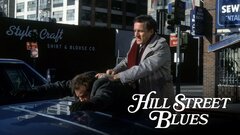
Hill Street BluesStream
Guest Star
Kristen
Series
1981

The Violation of Sarah McDavid
Actor
Tracy Barnes
Movie
1981

Splendor in the Grass
Actor
Hazel
Movie
1981

Good Morning AmericaStream
Guest
News
1975
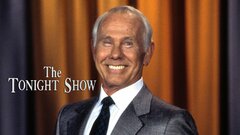
The Tonight Show Starring Johnny CarsonStream
Guest
Talk
1962
News aboutAlly Sheedy
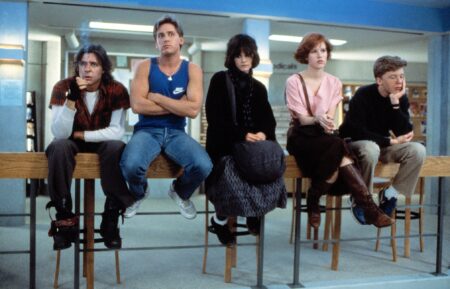
Molly Ringwald Gets Emotional, Judd Nelson Reveals Who Was Legal at ‘Breakfast Club’ 40th Reunion

Where Is the Cast of ‘The Breakfast Club’ 40 Years Later?
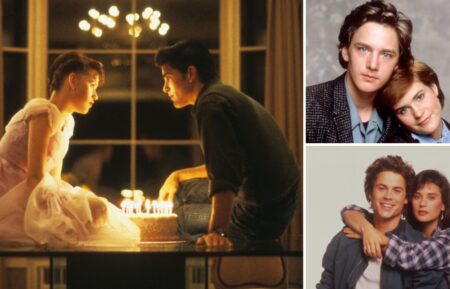
10 Brat Pack Movie Couples, Ranked
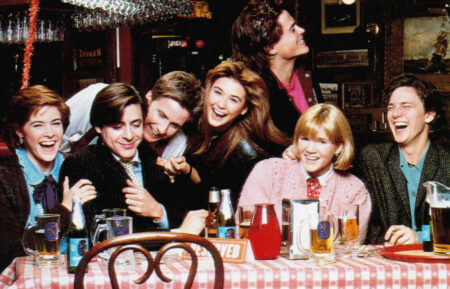
5 Things We Know About New ‘Brat Pack’ Documentary

5 Things We Know About New ‘Brat Pack’ Documentary

Exclusive
What’s in ‘Single Drunk Female’ Star Ally Sheedy’s Queue? ‘Marvelous Mrs. Maisel’ & More

Exclusive
‘Single Drunk Female’: Ally Sheedy Talks Molly Ringwald Reunion & Carol Changing in Season 2 (VIDEO)
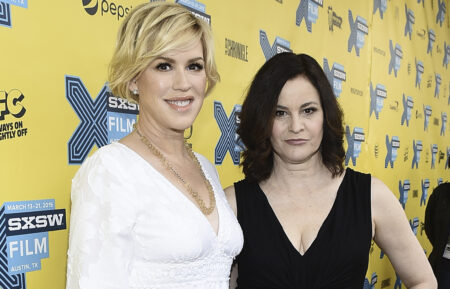
‘Single Drunk Female’ Stages ‘Breakfast Club’ Reunion With Molly Ringwald and Ally Sheedy
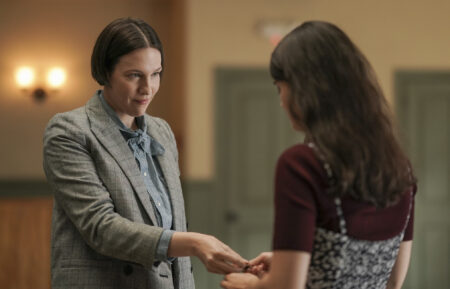
Q&A
‘Single Drunk Female’: Rebecca Henderson on Olivia Meeting Carol, Sam’s Sobriety & More
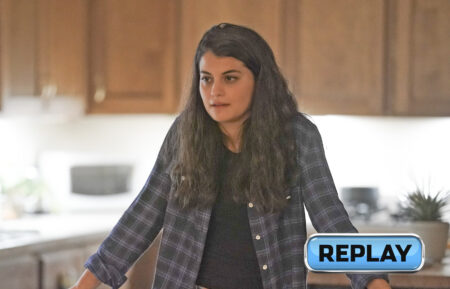
Can’t Miss Episode of the Week: ‘Single Drunk Female’ Series Premiere

Preview
‘Single Drunk Female’ Stars & EPs Talk Sam’s Sobriety Battle and Relationships (VIDEO)
